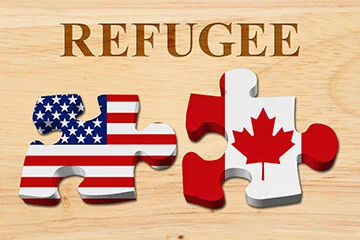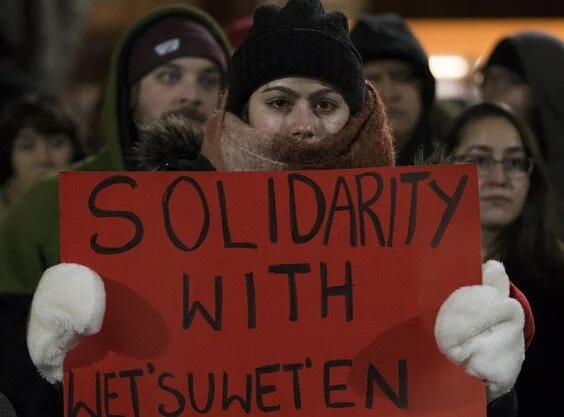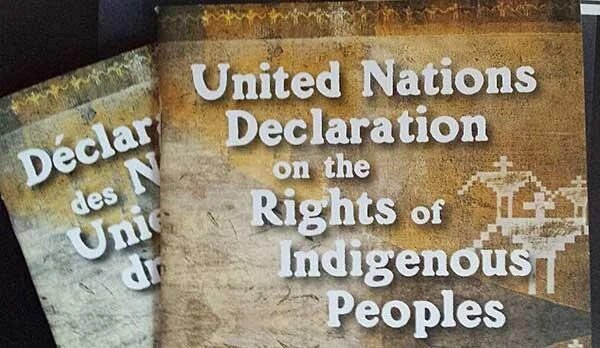Writing about human rights.
215 Reasons for Transformative Change*
The wave of grief has been immense following the discovery of the unmarked graves of 215 Indigenous children on the grounds of the government-authorized, Catholic Church-run institution in Kamloops that does not deserve to be remembered as either residential or a school.
Finally, Canadians everywhere are coming to terms with the agonizing truth that our country was founded in genocide, the reality of which is still with us.
With that awareness, nothing can be as before.
Being for human rights and against racism does not, an anti-racist make
My journey to anti-racism.
Failings, no doubt. Harms, unfortunately yes. Missed opportunities, certainly. Regret and apology, absolutely but not enough. Imperfect, yes. Clear road ahead, if only.
Ready to learn, eagerly and nervously. Determination, fully and nervously. Humility and growing self-awareness, to that I do commit.
Israel, Palestine and Canada: The true measure of ‘friendship’?*
Friendship should indeed be the foundation of Canada’s response to this devastating crisis.
Friendship with Israel and with Palestine. Friendship with Palestinians and Israelis, with Jews and Arabs. Friendship that is not one-sided.
Friendship that does not mask or ignore the truth.
Friendship that puts human rights, for all people, first.
Canada’s Obsession with Shutting Down the 49th Parallel to Refugees*
This month’s Federal Court of Appeal ruling, reversing a July 2020 Federal Court judgement that had found that the Safe Third Country Agreement (STCA) between Canada and the United States violates the Charter of Rights and Freedoms, is the latest chapter in a determined Canadian government effort going back nearly three decades to shut the Canada/US border down to refugees.
The COVID-19 catastrophe in Ontario is an utter human rights failure*
As is so often the case, it was clear that once again governments were retreating to their tendency to view human rights as an unnecessary distraction from the real work that needs doing. Human rights are seen as platitudes, rather than the clear road map they offer.
It is beyond regrettable that a year has been wasted in instituting a human rights framework, including meaningful oversight, for COVID-responses, certainly in Ontario but across the country. In fact, it is a complete dereliction of the most fundamental responsibilities of government.
Will governments finally take that step?
Or will they continue to leave human rights on the wishful-thinking sidelines?
And fail to deliver equality, dignity and safety to their people, all of their people, at one of the most crucial times in recent history.
It defies belief. Or does it?
Canada takes an important step in holding Syria accountable for torture*
Ten years ago, on March 15, 2011, thousands of Syrians marched through the streets of Damascus and Aleppo, calling for democracy and freedom for political prisoners. Inspired by the Arab Spring, they condemned the arrest and torture of high school students from Daraa, whose only crime was scribbling “it’s your turn next, doctor” on a wall, in an apparent reference to Syrian President Bashar al-Assad. The security forces responded by opening fire on the protestors. Teenagers’ graffiti had set into motion a chain of events that would quickly escalate into catastrophic violence.
It was the beginning of the Syrian civil war and the horrific atrocities that have haunted the world’s conscience ever since. Yet the Trudeau government’s recent decision to invoke the UN Convention Against Torture to hold Syria accountable for the Assad regime’s horrific atrocities has given hope to numerous victims of these crimes against humanity that they may witness a glimpse of justice before the International Court of Justice (ICJ) at The Hague.
This is a historic and courageous step that will profoundly shape Canada’s place in the world community, demonstrating that its commitment to a rules-oriented international order is not a mere platitude.
The Pandemic, Borders and Refugees*
The global response to the spread of COVID-19 teaches us that, although border closures may be critical to fighting the spread of disease, they cause harm, often irrevocable damage, to many of the world’s most vulnerable, namely refugees and asylum seekers.
At the height of the pandemic, 168 countries fully or partially closed their borders, and among those countries, nearly 90 refused to grant exceptions to asylum-seekers. Even among those who did not close their borders to asylum-seekers, procedures for admitting asylum-seekers, and processing their claims, slowed to a snail’s pace, leaving them in positions of profound insecurity. In many cases, the choice to refuse entry to asylum seekers amounted, in effect, to a violation of international law’s commitment to non-refoulement.
At the level of moral philosophy, these facts force a reckoning.
We need a human rights game plan for the 2022 Beijing Winter Olympics*
If governments and the Olympic movement are going to rebuff boycott suggestions it is incumbent upon them to demonstrate they are nonetheless committed to addressing the harrowing human rights backdrop behind the Beijing Games’ fanfare.
This is not playing politics. It is about respecting what the Olympics aspire to be.
Above all, it is about honouring the Uyghur people, the people of Hong Kong, Tibetans, Mongolians, Falun Gong practitioners, democracy campaigners, human rights defenders, journalists, labour activists, imprisoned Canadians, and countless others.
For them, the Olympic flame offers no inspiration or comfort. For them, we must set the flame ablaze with concern, solidarity, and action for human rights.
COVID-19: One year on, human rights remain sidelined
Generous cheques, good intentions, aspirational words, wishful thinking and serendipity are not enough. Taking a human rights approach requires deliberate and very explicit measures.
What have been missing are concrete and tangible approaches that deliberately adopt human rights principles in keeping with both international and national standards, ensure intersectional analysis and measurement of compliance with those human rights obligations, institute oversight to track implementation, provide public transparency and reporting on human rights results, commit to accountability for human rights failings, and meaningfully involve rights-holders, communities and independent experts at all stages.
That is why, in early days of the pandemic, over 300 wide-ranging Indigenous organizations, civil society groups, former political leader and academics came together in a proposal directed at all levels of government across the country, calling for robust human rights oversight that would encourage adoption of strong human rights measures and guard against intentional or unintended human rights violations.
The proposal was twofold.
China and the Olympics: Time for a human rights game plan
As I write, there are 340 days until the flame is set to be lit in Beijing, opening the 2022 Winter Olympics and the Paralympics after that.
We can be absolutely certain that every single one of those 340 days will share one grim reality.
Each day, grave human rights violations will suffocate freedom in Hong Kong; brutalize Tibetan, Falun Gong, pro-democracy and other prisoners held because of who they are or what they believe; and jeopardize the very survival of Uyghurs and other Muslim minorities whose plight is increasingly called out as a genocide.
Every day the rest of the world will espouse dismay, lament the inability to stop it, regret that it continues, pretend it is not happening, assert it is not their business, or enthusiastically support the Chinse government.
And each of those days it will continue.
Take just the past week.
Canada mustn't wait any longer to implement the UN declaration on Indigenous rights*
Bill C-15 is, of course, Indigenous rights legislation. It is also one of the most important pieces of human rights legislation in a generation. It takes our international human rights obligations seriously, brings those promises home and commits to action to uphold them.
And that should be embraced by us all.
Refugees from Hong Kong: Canada can and should do more
At the heart of today’s hearing is, of course, the rapid and unrelenting deterioration in the human rights situation in Hong Kong. The erosion of freedom and the intensification of repression has been deepening and expanding for a number of years, through the umbrella movement in 2014, anti-extradition reform protests in 2019 and the imposition of a new security law last year. When the national security law was enacted 8 months ago, Amnesty International noted,
“Virtually anything could be deemed a threat to “national security" under its provisions, and it can apply to anyone on the planet.”
And that is precisely what has occurred. This new law has been used widely to target students, political opponents, critics, journalists, and, of greatest concern, to curtail fundamental rights to freedom of expression, freedom of assembly and peaceful protest. A growing number of individuals – high profile and grassroots – have been arrested. In the face of remarkable courage and resilience on the part of Hong Kongers, this situation continues to worsen.
The Hassan Diab Case: Injustice expands, need for redress and reform deepens*
It is the latest outlandish development in a thirteen-year saga of injustice and utter disregard for key human rights norms that has been Kafkaesque at every turn. In a crushing decision that defies fundamental precepts of justice, and in the face of not even a scintilla of credible and reliable evidence, a French appeal court ruled on January 27 that Canadian citizen Hassan Diab should indeed face trial on charges related to a harrowing synagogue bombing in Paris four decades ago. What happens next is not yet clear.
Dr. Diab is currently in Canada, having returned to his family in January 2018 after he was released and allowed to leave France following more than three years of being held without charge and without trial, almost entirely in solitary confinement in a maximum-security prison in Paris.
Will France now seek his extradition (for a second time)? Has Canada learned a lesson such that the Minister of Justice would refuse that extradition request, given the virtually nonexistent case against Dr. Diab and the staggering catalogue of human rights violations that has characterized how he has been treated to date? Would French authorities take the extreme step of conducting an in absentia trial without Hassan Diab’s presence?
Canada’s new measures around China’s violations against Uyghurs aren’t really all that new*
Earlier this week, before a cabinet shuffle that ended his time as Canada’s Foreign Affairs Minister, François-Philippe Champagne joined International Trade Minister Mary Ng in announcing “measures related to the human-rights situation in the Xinjiang Uyghur Autonomous Region” in China.
He noted that the Trudeau government was “gravely concerned with evidence and reports of human-rights violations … involving members of the Uyghur ethnic minority and other minorities.”
Is this significant? It is. Is it enough? It is not. How could it be, in the face of staggering human-rights atrocities?
2021 can and must be a year of human rights transformation
As we move into the new year, we all desperately hold on to hope that 2021 will be ever so much brighter. Mostly that is keyed to the expectation that vaccines will essentially conquer COVID-19. And that brings the prospect that lives will be saved, and restrictions that have kept us apart and so many of us largely confined to home lifted.
That is of course crucial. The development, availability and delivery of the various COVID vaccines is a vital step forward in addressing the pandemic’s devastating human rights toll.
But it is not enough to assume that if we meet that urgent need to vaccinate people around the world (and that must mean rich and poor, North and South), we will have turned the corner and can move on. It may seem odd to say so, given the enormity of the task, the huge sums of money being spent and the staggering logistics involved, but that is the easy and obvious part.
What truly matters and will make a lasting difference is turning the corner on human rights. There is both necessity and potential to do just that.
Donald Trump’s sinister and disturbing execution spree
It is, quite simply put, vile.
Amidst everything (and there is much) that has been disturbing, dysfunctional and certainly frightening about the state of politics in the United States this year, one of the most harrowing and sinister storylines of all has received very little attention. Donald Trump has embarked on an unprecedented killing spree, overseeing far more executions on federal death row this year than in any year since reliable statistics began to be gathered in 1927.
And he is not finished. Three more people on federal death row – Lisa Montgomery, Corey Johnson and Dustin Higgs – are scheduled to be executed next month before Joe Biden is set to assume the presidency on January 20, 2021. Lisa Montgomery would be the first woman executed by the federal government in 67 years. There will undoubtedly be legal challenges and campaigns for commutation in an effort to stave off their executions, currently set for January 12, 14 and 15.
The year of the pandemic laid bare our global human rights crisis. Now let's fix it*
2020 has been a tumultuous year for human rights.
Like a mirror held to our faces, COVID-19 has unveiled our deepest inequities: Older people, women, Indigenous peoples, Black and racialized communities, refugees and migrants, low-income and homeless people, and those living with disabilities have borne the brunt of the pandemic.
The failure to respect the land and resource rights of Indigenous peoples in Canada once again led to confrontation and violence, notably in Wet’suwet’en Territory at the beginning of the year and the Treaty-protected Mi’kmaq lobster fishery more recently.
It is time: Bill C-15, the United Nations Declaration on the Rights of Indigenous Peoples Act
Last week, at long last and much anticipated, federal Justice Minister David Lametti tabled Bill C-15, the United Nations Declaration on the Rights of Indigenous Peoples Act, and the prospect that this crucial international human rights instrument will become part of the laws of Canada drew one very significant step closer.
This is law-making at its best, the potential to truly be a source of justice, to be ground-breaking and to be transformative. The vital importance of this legislation is made convincingly clear in its searing 22 paragraph preamble, beginning with the following:
“Whereas the United Nations Declaration on the Rights of Indigenous Peoples provides a framework for reconciliation, healing and peace, as well as harmonious and cooperative relations based on the principles of justice, democracy, respect for human rights, non-discrimination and good faith…”
Forum of Ministers on Human Rights: At long last, a chance to advance a national human rights agenda?
Federal, provincial and territorial ministers responsible for human rights in Canada launched a new initiative last month that did not receive much attention, let alone fanfare, at the time. They agreed to establish the Forum of Ministers on Human Rights, through which they will come together for an inter-ministerial meeting every two years. First such meeting should take place in 2022.
Perhaps that sounds rather humdrum and not deserving of attention or fanfare. But it could in fact be very significant and is certainly long overdue. And if ministers proceed with political will and imagination, it is a development that could lead to considerable progress in more reliably and consistently protecting human rights across the country. At long last.
We have come far and have far to go still.*
35 years ago, on a wintry evening in early 1985, I attended my first Amnesty International meeting.
I had just begun studying law at Dalhousie University in Halifax, with an entirely unformed notion of becoming a lawyer pursuing social change. I had seen an intriguing notice on a bulletin board giving details about the monthly meeting of the Halifax Amnesty group. I went, and never looked back.
I remember three things about that evening. First, the inspiring and welcoming Amnesty members I met were of all ages, backgrounds and interests, and from many different corners of the world; but were all united in a common sense of purpose and possibility. It was the evening I first heard of the Universal Declaration of Human Rights and our shared responsibility to uphold it.



















